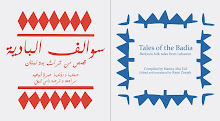"Iraq Gets American Seeds of Democracy
Democracy for Iraq meant erasing the "cradle of civilization" for unfettered free market capitalism. Iraq was conquered for its oil but also to make the country a giant free trade paradise. The scheme was diabolical, elaborate and ugly - blitzkrieg "shock and awe," elaborate PsyOps, fear as a weapon, repressive occupation, mass detention and torture, and the fastest, most sweeping country remake in history. It happened in weeks, Iraq no longer exists, the country is a wasteland, its people are devastated, and a blank slate was created for unrestrained corporate pillage on a near- unimaginable scale.
Part of the scheme was for GMO agribusiness giants to have free reign over that part of the economy - to radically transform Iraq's food production system into a model for GMO seeds and plants. One hundred swiftly implemented Bremer laws mandated it, but Iraqis had no say about them as the country is now governed out of Washington and its branch office inside the heavily-fortified Green Zone in the largest US embassy in the world by far.
Bremer laws imposed the harshest ever Chicago School-style "shock therapy" of the kind that devastated countries around the world since first introduced in Chile under Pinochet in 1973. The formula was familiar - mass firings of state employees in the hundreds of thousands; unrestricted imports with no tariffs, duties, inspections or taxes; deregulation; and the largest state liquidation sale and privatization plan since the Soviet Union collapsed.
Corporate taxes were lowered as well from 40% to a flat 15%, and foreign investors could own 100% of Iraqi assets other than oil. They could also repatriate all their profits, had no obligation to reinvest in the country and wouldn't be taxed. They were further given 40 year leases, and the only Saddam era laws remaining were those restricting trade unions and collective bargaining. Foreign transnationals, mainly US ones, swooped in and devoured everything. Iraqis couldn't compete, and the occupation laws assured it.
Consider Bremer Order 81. It covered patents, their duration and stated: "Farmers shall be prohibited from re-using seeds of protected varieties or any variety" the edict covered. It gave plant varieties patent holders absolute rights over farmers' using their seeds for 20 years. They'd be genetically engineered, owned by transnationals, and Iraqi farmers using them had to sign an agreement stipulating they'll pay a "technology fee" as well as an annual license fee.
Plant Variety Protection (PVP) was the core of this order. It made seed saving and reuse illegal. Even using "similar" seeds could result in severe fines and imprisonment. GMO seeds got protection to displace 10,000 years of developed plant varieties being sacrificed.
Iraq's fertile valley between the Tigris and Euphrates rivers is ideal for crop planting. Since 8000 BC, farmers used it to develop "rich seeds of almost every variety of wheat used in the world today." They were erased through a GMO modernization and industrialization scheme so agribusiness can get a foothold in the region and supply the world market. While Iraqis suffer and starve, GMO giants run the country's agriculture for export. Iraqi farmers are now agribusiness serfs and are forced to grow products foreign to the native diet like wheat designed for pasta.
Bremer laws mandated it and are inviolable under Article 26 of the US-drafted constitution. It states that the Iraqi government is powerless to change laws a foreign occupier made. To assure it, US-sympathizers are in every ministry with those most trusted in key ones. Engdahl sums up the damage to agriculture: "The forced transformation of Iraq's food production into patented GMO crops is one of the clearest examples of (how) Monsanto and other GMO giants are forcing (these) crops onto an unwilling or unknowing world population." They're infesting the planet with them one country at a time so it's futile trying to undo the damage they cause." (Thanks A.)








+081.jpg)



No comments:
Post a Comment